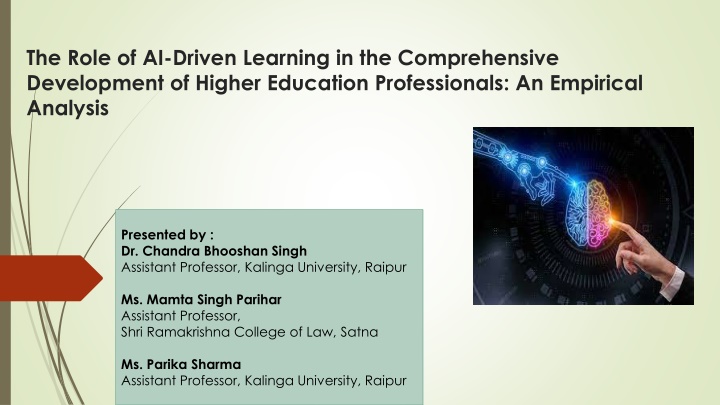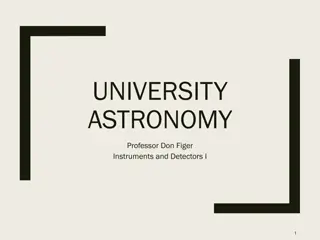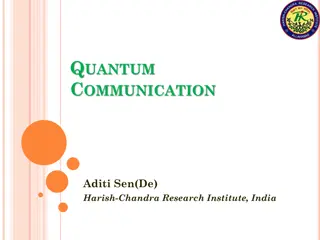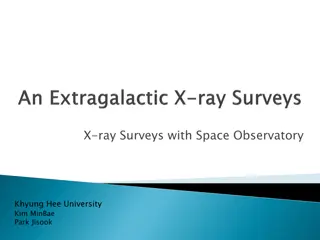
AI-Driven Learning for Higher Education Professionals
Explore the transformative role of AI-driven learning in the holistic development of higher education professionals. Discover how artificial intelligence enhances teaching, personalizes learning experiences, and supports educators' growth while maintaining the human connection in education.
Download Presentation

Please find below an Image/Link to download the presentation.
The content on the website is provided AS IS for your information and personal use only. It may not be sold, licensed, or shared on other websites without obtaining consent from the author. If you encounter any issues during the download, it is possible that the publisher has removed the file from their server.
You are allowed to download the files provided on this website for personal or commercial use, subject to the condition that they are used lawfully. All files are the property of their respective owners.
The content on the website is provided AS IS for your information and personal use only. It may not be sold, licensed, or shared on other websites without obtaining consent from the author.
E N D
Presentation Transcript
The Role of AI-Driven Learning in the Comprehensive Development of Higher Education Professionals: An Empirical Analysis Presented by : Dr. Chandra Bhooshan Singh Assistant Professor, Kalinga University, Raipur Ms. Mamta Singh Parihar Assistant Professor, Shri Ramakrishna College of Law, Satna Ms. Parika Sharma Assistant Professor, Kalinga University, Raipur
INTRODUCTION Artificial Intelligence (AI) has emerged as a pivotal tool across various industries, including education. As educational systems evolve in response to technological advancements, AI- based learning offers significant potential to enhance the professional development of educators. Faculty members and administrators in higher education are vital to ensuring the quality of education in universities and colleges. However, the rapid pace of technological change necessitates continuous skill development and adaptation to modern teaching methodologies. AI, with its capacity to personalize learning experiences and automate routine processes, is poised to become a crucial enabler of this professional growth. AI refers broadly to machines simulating human intelligence to perform tasks such as learning, decision-making, and problem-solving. In the educational context, AI is transforming both administrative and instructional practices. Tools such as intelligent tutoring systems, adaptive learning platforms, and virtual assistants are improving the quality of education by offering innovative solutions. For higher education professionals, AI facilitates the development of new teaching strategies, enhances student engagement, and streamlines administrative workloads, enabling educators to concentrate more on pedagogical advancements and less on routine responsibilities.
Objective The primary objective of this study is to identify the role of AI-based learning in the holistic development of higher education professionals. Study Methodology This study considered responses from 219 participants, consisting of professionals and educators from higher education institutions. Data collection was conducted using a random sampling method, and the analysis was performed using Explanatory Factor Analysis (EFA) to derive meaningful insights.
Conclusion In conclusion, AI-based learning is becoming an essential tool in the professional development of higher education educators. It not only streamlines tasks and personalizes learning but also aids in the growth of educators' skills, critical thinking, and emotional intelligence. However, for AI to fully benefit education, it is crucial for institutions to address the accompanying challenges. Educators must be adequately prepared to use AI responsibly, ensuring that it supports teaching while preserving the vital human connection between educators and students. While AI can enhance efficiency and teaching methods, it should complement, not replace, the role of educators. The true potential of AI in education will be realized when it is thoughtfully integrated, enabling educators to adapt to the digital age. Institutions that embrace AI with careful consideration will foster improved learning environments and support the success of both students and educators. The key factors identified in the study Personalized Learning Experiences, Data-Driven Insights, Predictive Analytics for Decision-Making, and Collaborative Learning Platforms highlight AI's transformative role in the holistic development of higher education professionals.




















